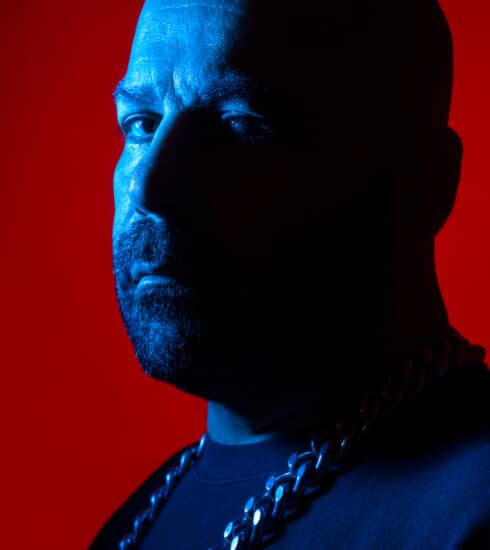Legal Eagle Judge Jules Shares Opinion on Issues Affecting The Industry
For almost three decades Judge Jules has led the way in the world of dance music. Since kicking off his career behind the decks in 1987, Judge Jules has ticked every box, as a DJ, producer, promoter, A&R, radio presenter, taste-maker and, more recently, a music specialist lawyer.
As a former BBC 1 resident and international superstar DJ, you’ve witnessed the evolution of the dance music industry. You now have a monthly show on Kisstory and are played their party at O Beach Ibiza on 29th August. What’s the vibe like at these parties, and how does it differ from other places in Ibiza?
Ten years ago was really when outdoor, daytime partying really started in Ibiza, which is symptomatic of a new generation who are not as late-night as those who were going out in ibiza 20 years. Although that certainly applies to the British market, I think the Spanish and southern European market is still quite late-night. It’s really good fun playing in the open air; there’s something special about it, and I’m lucky enough to play many festivals in the open air throughout the summer. it’s a totally different vibe from a club, maybe it’s because you can see each other and you can’t be hidden in the way that you can in a nightclub.
You’ve made a mix for our Selects series. Can you let us know how your taste has evolved and the producers and styles you’re loving these days?
So the mix I’ve done takes a lot of elements onboard that I love. My favourite tunes have always had melancholy and euphoria rolled into one, which almost sounds like a contradiction. Still, I think the best producers manage to make something that’s in a minor key yet has a certain euphoria. One guy who is doing it well right now is Franky Wah, and Anyma is doing exceptionally well. Many labels champion that style, Anjunadeep being one of them, and I guess that is how I would sum up the mix I’ve done. There are many one-off producers that I could refer to as well. One of the great joys (that can also be a frustration at times) about electronic music is the fact that certain producers manage to hit their moment of zen if just once and never manage to replicate it again, so you can never rely on any one producer, or there are very few of them anyway, to consistently deliver the goods meaning that as a DJ you have to be consistently on the lookout for new music. If you were to be a bit lazy and dip in- dip out when it came to the quest for new music, thinking: “well, I know a few producers that made great music this year,” then you will miss out on too much, and you’re not doing your job correctly.
Times and tastes always change. How difficult has it been to transition your style so as not to alienate your fans but become more appealing to a modern audience?
I think that’s a really good question. There was a period where tech house was the dominant force in UK clubbing where it might have been a little bit more difficult to reconcile my musical style – which is more banging – with that of tech house. The way I dealt with that was by making a lot of my own versions of things, which would be a hybrid of the two and making my own bootleg remixes. In the last couple of years, however, musical taste globally has moved much faster and harder. It has made that connection between the old and the new significantly easier. I don’t find myself having to change my style at all to play to young and old crowds together because that’s normally my market. My market is predominantly over 35s, but in any crowd that I’m playing to, there’s always a significant number of people younger than 35 as well.
As a legal professional, what are some of the key challenges facing today’s artists in the wake of new technologies such as AI and blockchain?
Dealing with blockchain first, although there have been certain attempts to simplify royalty payments and make royalty payments to artists more transparent, thus far it hasn’t impacted on the music industry in any more than the capacity of certain start ups trying to create businesses that will do that, but it hasn’t really taken off. AI on the other hand is the buzzword of 2023 in the way that I guess NFTs were in 2021 and 2022. There are copyright related considerations – whether an AI generated piece of work will infringe copyright – and there are also creative considerations because we are getting to the stage where vocals and tracks can be created by AI. The extent to which that will become significant in music making remains to be seen because originality and a style that is very bespoke to the artist, while allowing for evolution, and AI, might be mutually exclusive.
Where do you feel there are still grey areas in the industry when it comes to publishing rights and royalties?
I think the law is quite clear on publishing rights and royalties. It’s more about the commercial practices and how some small specialist dance labels sometimes try to land-grab more from an artist than they should. For example, I don’t think a label should ever sign the artist publishing, it’s a completely different right, but many small labels insist on it. Not necessarily with ill intent; they might think that is what is done. Still, I don’t think it’s reasonable because you only have three income streams to make money from your records – recording, publishing and neighbouring rights royalties. They should always be collected separately, either by the artist to the extent possible or via independent deals for each income stream. Some labels try to land-grab and collect more than just one of those.
Which platforms have got it right, in your opinion, and which platforms need to up their game?
There’s a lot of controversy around X (ex-Twitter). The music business has taken them to court for non payment of royalties, so clearly, there’s a problem. Spotify does pay publishing royalties; any controversy in that respect was cleared up a long time ago, although the music publishers of the world will always argue that actually, the revenue that’s divided up and apportioned between recordings income and publishing income by Spotify should be favourable to publishing, because at the moment it’s apportioned in a ratio of 9:1. And then there’s an element of uncertainty about TikTok, because although TikTok does pay royalties, do they pay enough and is it readily apportionable – ie. If a label receives royalties, how well is it accounted for so that they can see who to pay through the royalties to?






